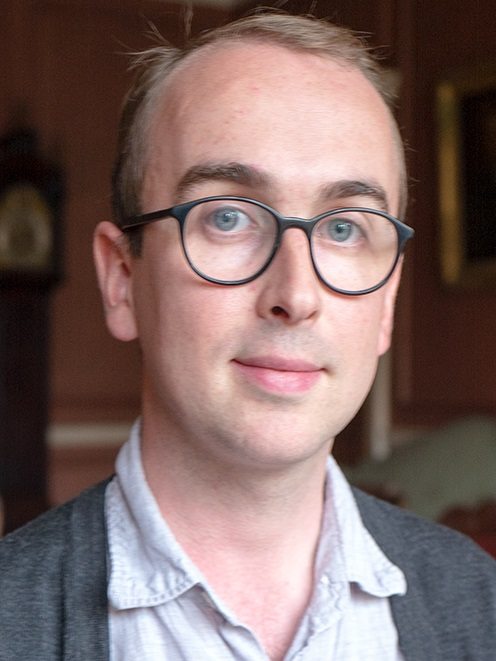PhD to Professor: In Conversation with Joseph Ashmore
Over the next few weeks on the blog we’ll be talking to several Pembroke people at different stages in their academic careers. Topics include ethnography as a tool for research, postgraduate mental health, and the path from a Masters to the all-important first research fellowship or lectureship. We started the series last week with a blog about PhD Ethnography, which you can read here.
For many who wish to pursue an academic career applying for research fellowships is the next step post-PhD. Research fellowships allow early career academics to devote time to their research, often without an obligation to teach. They can also be highly competitive, and are by no means the only option post-PhD. In the second blog in our series Joseph Ashmore (2009), who recently completed his PhD in English at Pembroke, talks about his experiences as a PhD student and his reasons for applying for a research fellowship. Joseph is currently a Research Fellow at Gonville and Caius College.
1. What is your research subject, and what is it about it that appeals to you?
My subject area is English, and I mainly work on the religious writing of the sixteenth and seventeenth centuries. I think this is such a fascinating period because it allows us to see how the Renaissance and the Reformation continued to influence the ways in which people wrote and expressed themselves. It's really fertile ground for a literary scholar: the big theological questions and problems of the age can find themselves expressed in the smallest textual details—the rhyme scheme of a poem, or the tense of a verb.
2. What were your PhD years like? And what sort of things do you think an aspiring PhD candidate should look out for when applying?
I had a wonderful time as a PhD student in Pembroke. I was really lucky to have such an excellent supervisor, Katrin Ettenhuber, who had also supervised me as an undergraduate and MPhil student. It was not only that we shared a similar subject interest; she was also unfailingly generous with her time and an amazingly diligent reader of my work.
The resources for research at the university in general were instrumental to my doctoral study—there’s a wide-ranging collection of early books in the University Library. But I was especially thrilled to be able to consult some of the rare books and manuscripts in Pembroke’s own collection. One of the authors whom I study in my thesis, Lancelot Andrewes, was a student, Fellow, and Master of the college, and most of his library is now in the college library.
I think when you’re applying for a PhD it’s crucial to find a supervisor who you’d like to work with. As I’ve said, I found it really useful to have some of the resources that I needed in relatively close range, too. Beyond that, I think the social considerations of graduate study need to be borne in mind — especially with all those long hours in the library! I was very lucky at Pembroke to be part of such a considerate and lively graduate community, and that sort of support can’t really be underestimated.
3. How did you feel on completing your PhD?
Haha, pretty exhausted! But it’s a nice feeling to have accomplished something after all this time. The questions and comments that I received during my viva had helped me think about my research from a new angle, so I’m now looking forward to developing it further.
4. Why choose a research fellowship as the next step?
I chose a research fellowship because they’re a good way of consolidating and developing your research straight after your doctorate. There are often no (or very few) teaching obligations, so you can devote yourself fully to your research.
5. How did you find the process of applying for the research fellowship?
There were certainly elements of the process that I found difficult. There are a lot of different applications to complete, and the competition is always pretty stiff - and there’s always an element of luck, of course. I applied in my third year and didn't get one, so I was a little cautious when applying the following year. Luckily, my supervisor and adviser gave me excellent advice in shaping (and re-shaping) my application. I would say that there’s a value in the process regardless of how it turns out: it’s a good way of thinking about your project as a whole, and in communicating the findings of your research to a wider audience. It’s also important to remember that it’s by no means the only option at the end of a PhD, and there are lots of advantages to the others, too.
Next week we'll be taking a look at one of those other options, talking to the current Graduate Union President about student mental health.

